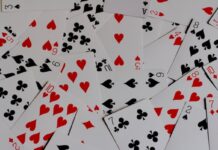Police in Chandigarh, India, have busted an IPL betting racket operating from a rented residence.
Four people were arrested, and a large amount of electronic and betting-related equipment was seized after a syndicate handling several lakhs of rupees daily was raided.
Investigation Details Emerge in IPL Betting Racket Case
According to local news reports, the raid was launched after Chandigarh police received a tip-off on May 26 regarding four individuals running an illicit betting operation during a live Indian Premier League cricket match between the Mumbai Indians and the Punjab Kings XI.
The raid, conducted at House No. 1229 in Sector 33, resulted in the arrest of four men, known as “Jolly, Deepu Pepsi, Santosh, and Bhuvan.” The police confiscated 43 mobile phones, six laptops, two tablets, one LED screen, and two routers. Authorities also found a portable ‘gamble box’ and numerous other items consistent with a betting operation.
Reports outline that all four men were arrested under Sections 3 and 4 of the Punjab Gambling Act. Details released by police suggest that the operation was “meticulously planned and executed from a rented property.”
The culprits broadcast IPL matches, offered real-time betting options, and had a well-established betting network through local bookmakers.
The four men took payments exclusively offline, with cash transactions facilitated through intermediaries. According to the investigation, certain members of the syndicate were operating from Dubai, posing the risk of a wider, international operation.
Authorities have stated that the investigation is ongoing, with financial records being examined and other members of the betting network being sought.
Government and Industry at War Over Games of Skill
Gambling regulation in India varies from state to state. Recently, the Supreme Court of India has been involved in a debate between online gaming companies and the Indian government over whether games such as chess, rummy, and bridge are considered games of chance or games of skill.
The government’s stance is that if betting is involved, the games become games of chance. This is important from a regulatory standpoint, not for prohibition, but because any games of chance are subject to the Goods and Services Tax (GST) in India.
Representing industry interests, A.M. Singhvi stated: “Is the government saying that in chess, the moment I put money on it, the game metamorphosizes from a game of skill into a game of chance?”
He continued: “The character of a game cannot be so changed.”
The GST tax rate is 28%, so it would be a significant blow to online companies should the entire contest fee attract such taxation.











